RMC Island 40, off the grid house boating
That somewhat odd looking “waterborne structure” is Robinhood Marine Center’s first Island 40, designed to give renters who may only have small boat skills a wicked nice Maine cruising harbor experience, as in swinging on a mooring with seals, osprey, lobster men, and cruisers for neighbors, with good exploration possibilities in all directions (and with a pleasant “destination” marina nearby). And it’s a hoot! I’m sitting at the Tessie Ann’s spacious aft dinette right now, enjoying a cool sea breeze and the use of a well thought out battery/inverter/solar panel system…
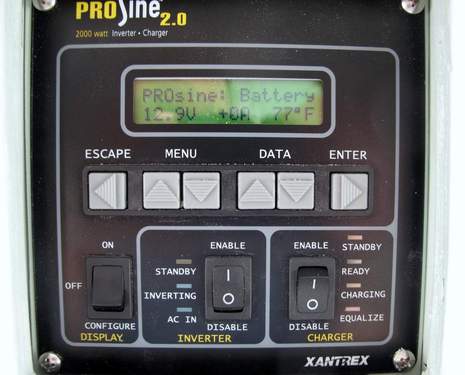 PS The Tessie Ann comes with the use of the fine 15′ outboard and rowing skiff seen below, but it would be great to bring along your own kayaks and/or a larger outboard. Both sides of the Island 40 are set up for tying off small craft, in fact, and Riggs Cove is central to all sorts of shallow and deep water cruising, striper fishing too. While you don’t have to be an experienced cruiser to enjoy this vessel, many will appreciate how trouble free and comfortable it is, and also the gentleman responsible for this unusual concept…
PS The Tessie Ann comes with the use of the fine 15′ outboard and rowing skiff seen below, but it would be great to bring along your own kayaks and/or a larger outboard. Both sides of the Island 40 are set up for tying off small craft, in fact, and Riggs Cove is central to all sorts of shallow and deep water cruising, striper fishing too. While you don’t have to be an experienced cruiser to enjoy this vessel, many will appreciate how trouble free and comfortable it is, and also the gentleman responsible for this unusual concept…
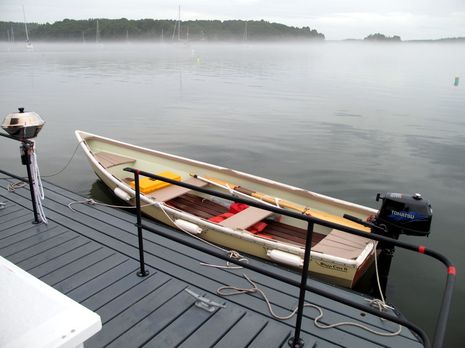 That would be Andy Vavolotis, who founded and ran Cape Dory Yachts for some 28 years and 2,800 sail boats, and has now owned Robinhood Marine Center even longer. And he’s never stopped building things, as can be seen in RMC’s fun and historic out buildings, and the wild array of multihulls hanging from the ceiling of one large storage shed. The skiff and the Tessie Ann, named after Andy’s mom, are the latest, but certainly not the last.
That would be Andy Vavolotis, who founded and ran Cape Dory Yachts for some 28 years and 2,800 sail boats, and has now owned Robinhood Marine Center even longer. And he’s never stopped building things, as can be seen in RMC’s fun and historic out buildings, and the wild array of multihulls hanging from the ceiling of one large storage shed. The skiff and the Tessie Ann, named after Andy’s mom, are the latest, but certainly not the last.


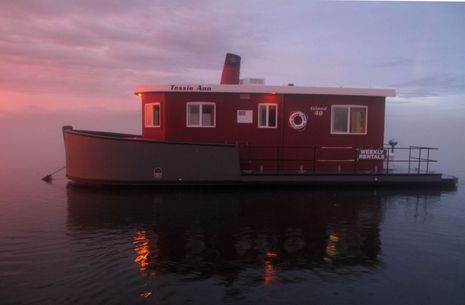
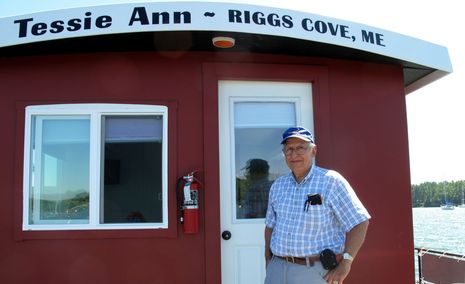
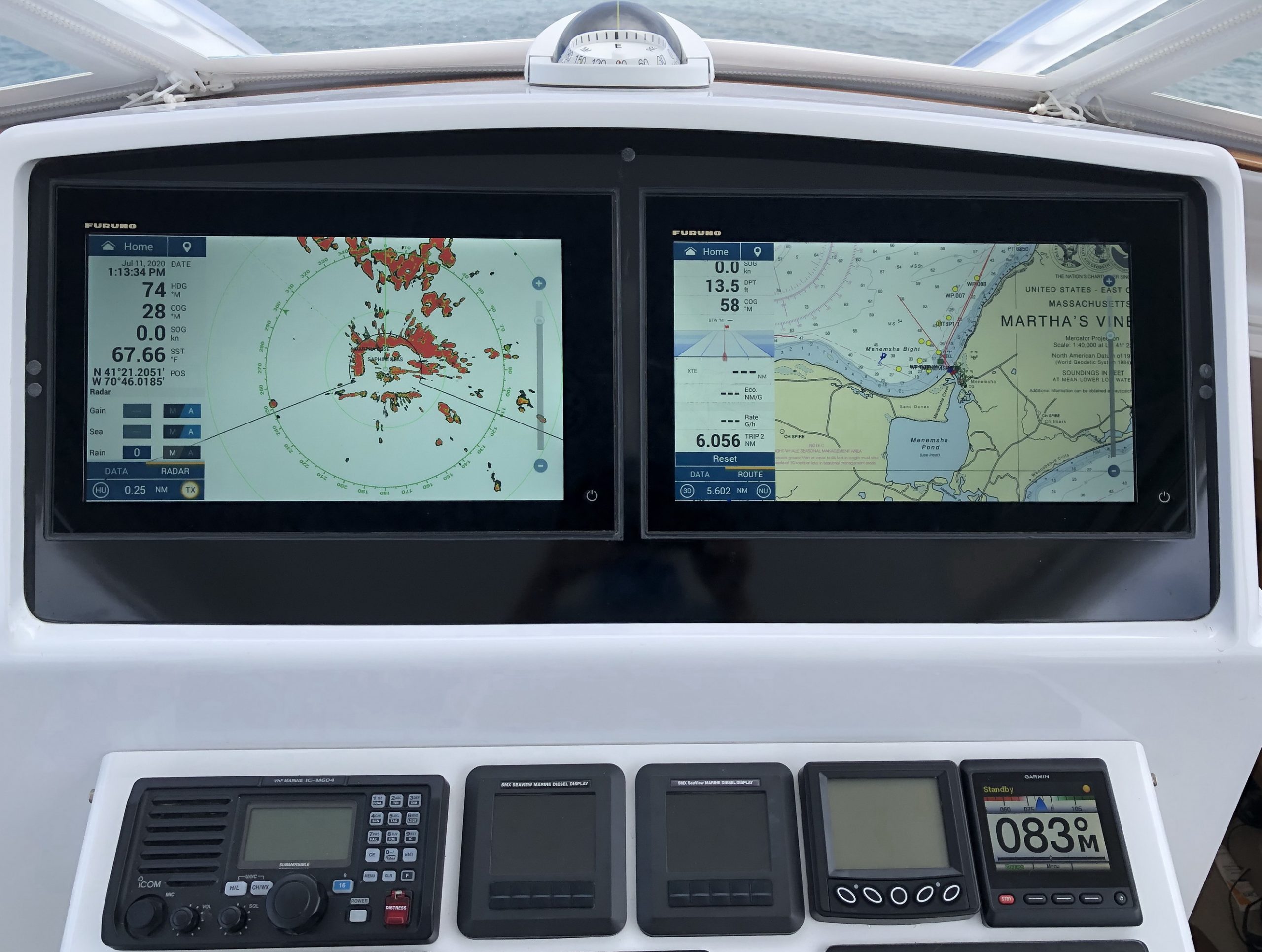

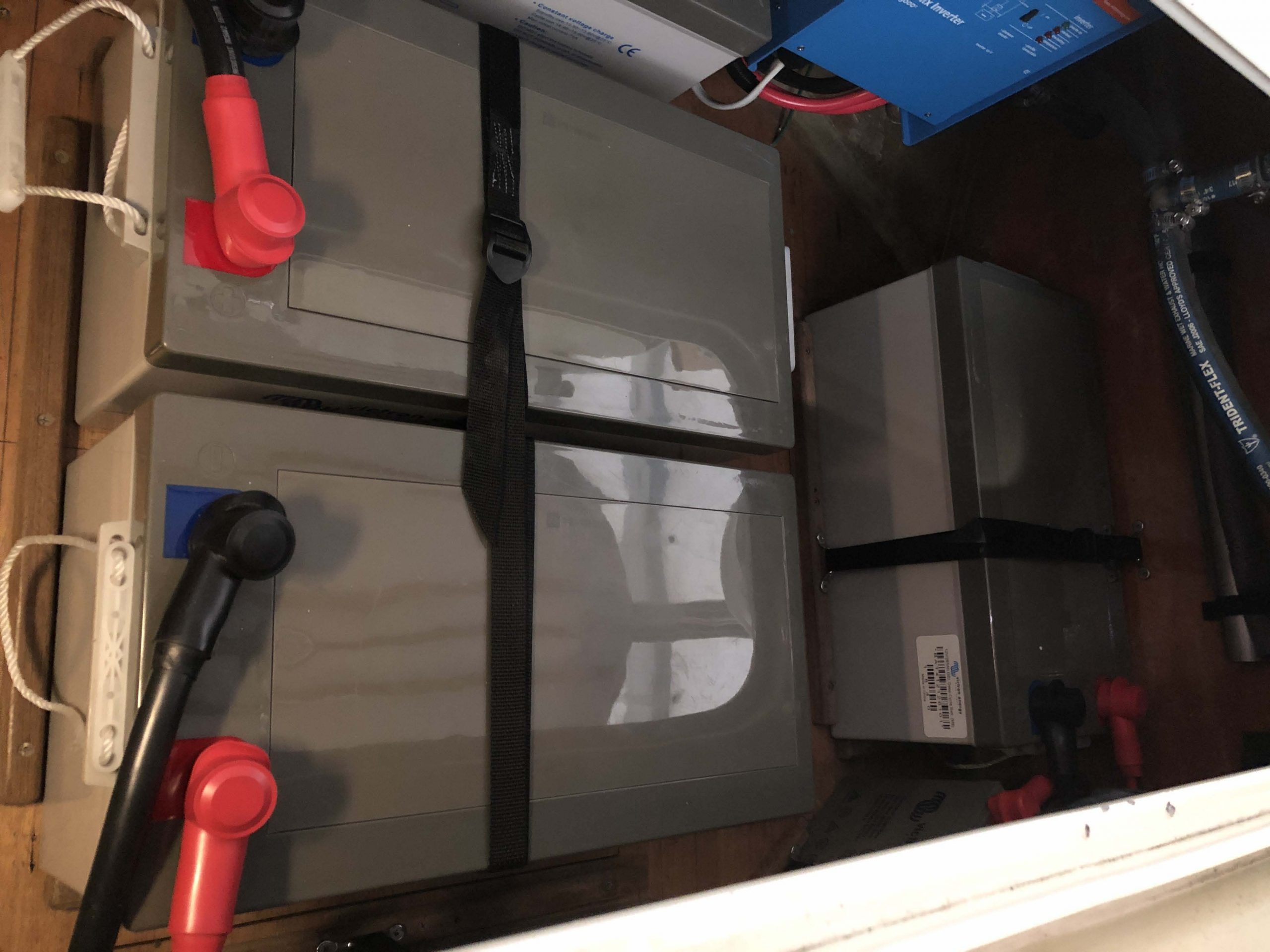
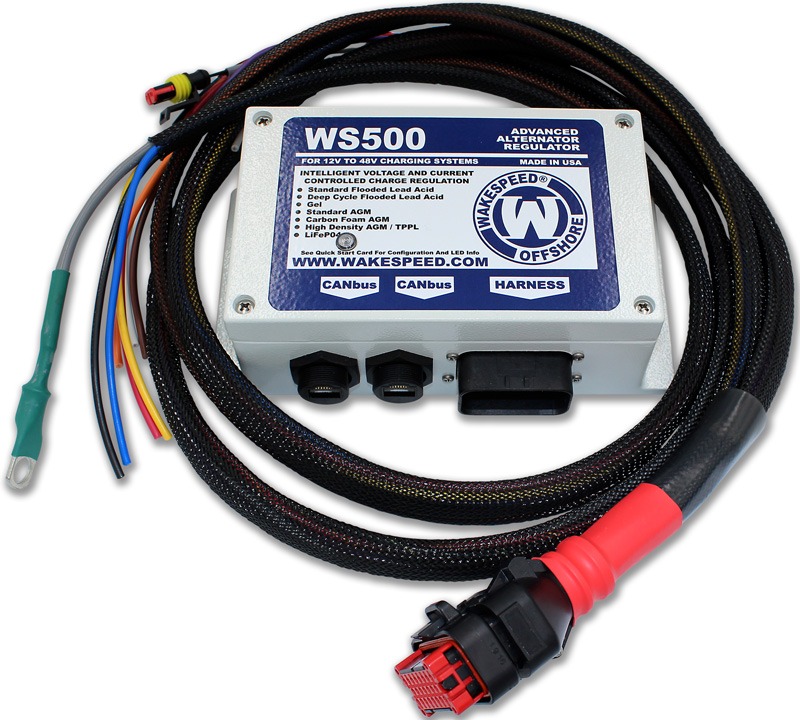








What a great getaway idea, in a great location Kate and I both loved the idea. The next one should be in the basin at the Bad River in Georgian Bay, Thanks.
> The propane-powered heating, cooking, and refrigeration
> systems, normally seen on RVs, are unfortunately not suitable
> for a real boat, because they work well and fairly efficiently
> (I think).
But why not? Certainly propane has it’s risks, but properly equipped and with the right protection in place, that’s mitigated effectively. Our boat has propane cooking and refrigeration. There’s a propane sniffer tied to the solenoid, so it’s all pretty safe, really. It has a propane hot water heater too, though it died long ago (don’t worry, it’s hanging off the transom where there are no worries about CO or oxygen depletion – though that’s also why it died, from corrosion). Newer models, with appropriate sensors and no standing pilot, are quite safe and can be located in more hospitable locations. Yes, I know what the insurance companies say about all this, but I think with the right safeguards in place, and properly installed, it’s pretty darn safe. You are right about being efficient. We go a few months on a 20# cylinder.
As far as load for the inverter goes, I don’t know anything about the unit on that boat, but if it’s like our Link2000/Freedom30 (same company – Xantrex) you can configure the amount of load required for the inverter to power up. Given that it’s a rental, perhaps it’s set to a high(ish) value?
Thanks, Scott. Come to think of it, I have seen a cruising power boat with propane refrigeration and hot water. But they only felt comfortable leaving the hot water on when they were aboard and the reefer had a rather funky and space consuming exhaust system. The Island 40 has big hot water and reefer exhaust vents on either side, which were fine but hard to imagine on a sea going vessel. Also, I felt a slight discomfort hearing the hot water system light itself when I was semi asleep in the queen bed. But then again, she has a sniffer system and no bilge to fill with gas.
That master stateroom, by the way, reminded me of a megayacht, what with the walk around queen bed, big opening windows on three sides, and the private forward deck area created by the high rounded bulwark. Very romantic!
Bill, I think this concept works best when moored close to a boatyard or marina, which vastly simplifies all the maintenance, parking, etc. logistics. There are quite a few places that would work in Maine, and I’d love to see a few yards create their own style of “bed and dinghy” waterborne structure (that’s how the Island 40 is licensed by the Corps of Engineers, not as a boat).
Any air conditioning technologies available for usage in the south, that would be sans generator?
Propane refrigeration as implemented in RVs does not like heeling. That probably limits the marine market considerably as smaller boats (even power) would heel in a crosswind and bigger boats that wouldn’t heel typically use other refrigeration options.
Bill, At a boat show a couple of years ago I saw a supposedly super low power and compact dehumidifier based on some sort of piezo ceramic technology that would eventually “revolutionize marine air cooling”…but it was pre prototype even and I haven’t heard anything more about it.
A proven technology I’m thinking of applying to Gizmo is an awning! I picture one extending forward from the flying bridge over the whole main cabin, keeping direct sun off it, and allowing all three hatches to catch air even during showers. It wouldn’t be for underway use, but I think it would help a lot, without drawing down batteries or having to run the friggin generator.
I have a propane stove, and would welcome propane refrigeration. However, my sniffer goes off so frequently it’s a real pain in the neck. While the main cause of it going off (hydrogen from the battery while charging) wouldn’t be an issue on the hook, it seems to go off on inversions that set off my CO detector as well.